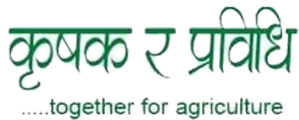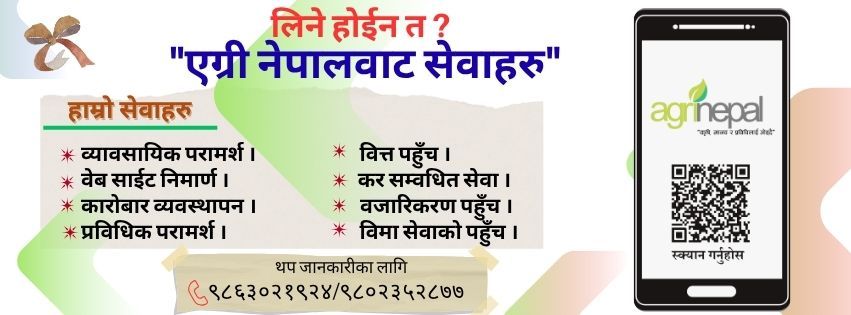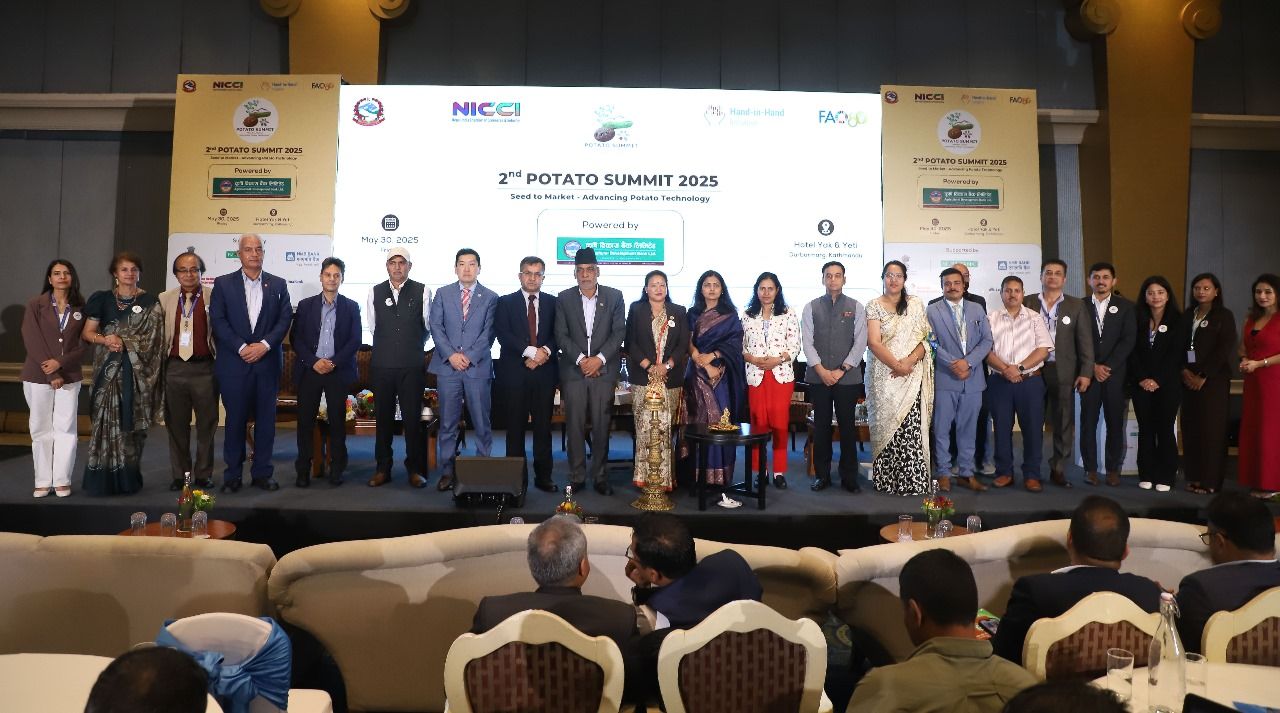Second Potato Summit: Potato’s role in food security and economic growth.
The Second Potato Summit 2025, organized by the Nepal-India Chamber of Commerce & Industry (NICCI) in collaboration with the Ministry of Agriculture and Livestock Development (MoALD) and the Food and Agriculture Organization (FAO), convened at Hotel Yak & Yeti to deliberate on strategies for enhancing Nepal’s potato industry. The summit focused on seed value chain optimization, market development, potato processing opportunities, and private sector engagement.
Honorable Minister Ram Nath Adhikari, of Agriculture and Livestock Development, inaugurated the summit and delivered the inaugural remarks. He expressed the government’s commitment to supporting the potato sector through policy reforms and incentives for investment in processing technologies.
Minister Adhikari informed that in we have 16 Potato zones and 2 Super Zone as to promote productivity and enhance livelihood of local farmers however the demand of potato farmers for setting up the potato zone is high. Since the various technology and developments in potato seed is in practice now we need to focus even more into find out the appropriate seeds which is important so that the variety of quality potato could be identified and developed for the commercial value and Government is concentrating in this.
Honorable Ms. Kusum Devi Thapa, Chairperson of the Agriculture, Cooperatives, and Natural Resources Committee of Federal Parliament, emphasized the potential of potato processing in adding value to the crop. She encouraged investment in processing technologies to diversify potato products and expansion of market opportunities both domestically and internationally.
Dr. Govinda Prasad Sharma, Secretary, MoALD also informed that the Ministry has worked on the adaptation of the declaration of 1st Potato Summit which was organized last year and few recommendations have already been addressed and still working on to address those remaining issues. Dr. Sharma further highlighted the government’s initiatives to support market development. Government is working with FAO prioritizing the highland potato. He mentioned efforts to improve market infrastructure and establish direct linkages between farmers and consumers, thereby enhancing market access for potato producers.
Mr. Ken Shimizu, FAO Country Representative for Bhutan and Nepal, highlighted the importance of understanding market trends and consumer preferences. He emphasized that the Hand-in-Hand Initiative (HiHI) has identified Highland Potato as a priority commodity, aiming to catalyze investment and spatially targeted interventions for inclusive rural development. This initiative supports the Government of Nepal’s efforts to enhance food and nutrition security, promote sustainability, bolster resilience, and foster rural development.
Ms. Garima Nautiyal, Second Secretary (Development Partnership and Political) at the Embassy of India in Kathmandu, underscored the significance of international cooperation in enhancing seed quality and disease management. She expressed India’s commitment to supporting Nepal in strengthening its seed sector through knowledge sharing and technical assistance.
Keynote speaker of the Summit Mr. SP Singh, Vice President- Supply Chain at Technico Agriscience Ltd. (ITC’s subsidiary), shared insights from India’s experience in seed potato production. He further shared the Development of Potato Sector in 20 years that what India had adopted within this 20 years.
He noted that India has developed approximately 65 potato varieties tailored to various micro-markets, contributing to its status as the second-largest potato producer globally.
He further added that India used to import Potato from various countries where as India has become the major potato exporter as it exports potato in 37 countries now.
Mr. Ravi Kumar Rayavaram, Vice President of NICCI, emphasized the importance of improving seed quality and accessibility. He highlighted the need for collaborative efforts to address challenges in the seed value chain, ensuring that farmers have access to high-quality seeds at affordable prices.
Mrs. Sunita Nhemhaphuki, CEO of 3S Foundation and Knowledge Partner of the Potato Summit 2025, delivered the vote of thanks. She acknowledged the contributions of all stakeholders and reiterated the importance of private sector engagement in driving innovation and investment in the potato value chain.
The experts discussed on the adoption of improved seed varieties, the critical role of cold storage in reducing post-harvest losses, and the importance of targeted financing to enhance the potato value chain. During Q and A session, the participants emphasized the need for accessible credit for farmers and entrepreneurs to invest in modern farming equipment and processing facilities and mechanization in improving potato farming efficiency.
During the panel discussion of the local governments’ role in strengthening the potato value chain at the grassroots level, the representatives shared community-based initiatives and support for farmers to improve production and marketing. The dynamics of the potato market in Nepal were examined, highlighting the challenges in supply chain management and the need for efficient marketing systems to ensure fair prices for both producers and consumers.
The summit emphasized the importance of promoting crop insurance as a risk reduction strategy in potato farming, significance of insurance in protecting farmers from losses due to pests, diseases, and climatic events. Furthermore, the role of financial institutions in supporting the potato sector through loans and investment in infrastructure for investing in scalable agribusiness models to strengthen the potato value chain, emphasizing the importance of strategic investments in processing, storage, and marketing to enhance the competitiveness of Nepal’s potato sector.




प्रतिक्रिया